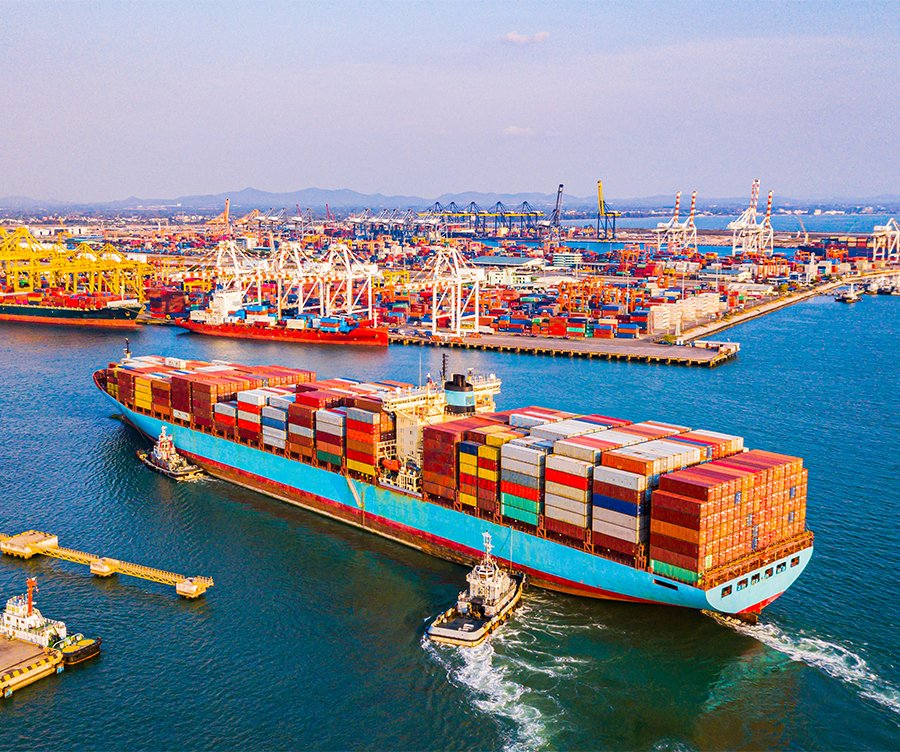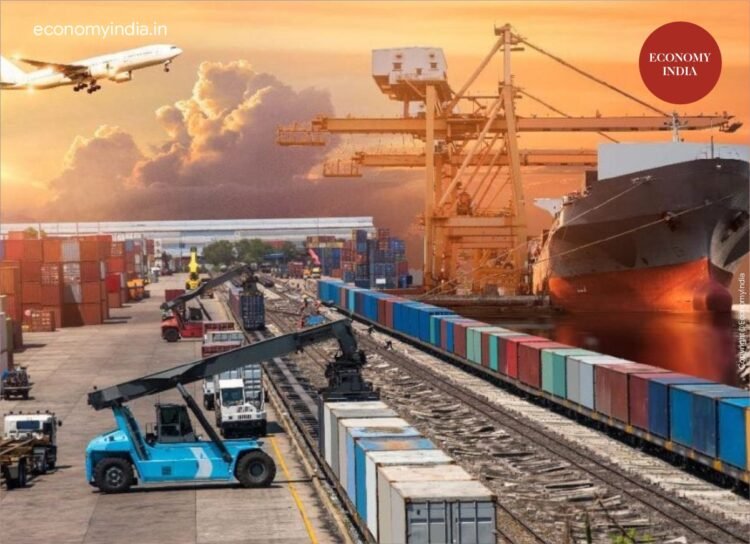Government extends RoDTEP scheme by six months, providing continued relief to exporters and boosting competitiveness in global markets.
NEW DELHI (Economy India): On September 30, 2025, the Government of India announced the extension of the Remission of Duties and Taxes on Export Products (RoDTEP) scheme until March 31, 2026. Initially scheduled to expire on September 30, 2025, this move aims to provide continued financial support to exporters across the country, helping Indian goods remain competitive in global markets while mitigating rising costs due to tariffs and supply chain disruptions.
Exporters and trade analysts have welcomed this extension, emphasizing its importance for sustaining India’s export growth in a challenging global trade environment.
Historical Context: RoDTEP Scheme
The RoDTEP scheme was launched in January 2021 to replace the Merchandise Exports from India Scheme (MEIS), which was discontinued following a World Trade Organization (WTO) ruling.
The scheme provides reimbursement for various taxes, duties, and levies that were earlier non-refundable, such as:
- GST on inputs used in exports
- Central and state duties on fuel and electricity
- Sales tax and mandi tax
By reimbursing these costs, RoDTEP reduces the cost of production for exporters and improves the price competitiveness of Indian goods abroad.
Since its launch, the scheme has benefited sectors ranging from textiles and leather to chemicals and engineering goods, helping India maintain a robust export momentum.

Economic Significance of the Extension
1. Boosting Export Competitiveness
The extension of RoDTEP will provide exporters with continued relief on embedded taxes, helping them manage input costs and remain price-competitive in international markets. According to the Ministry of Commerce, approximately $500 billion worth of exports could benefit from this extension during the next six months.
2. Countering Global Trade Challenges
Indian exporters have faced headwinds from:
- Rising tariffs in key markets, particularly in the US and Europe
- Supply chain disruptions due to geopolitical tensions
- Fluctuating commodity prices
By extending RoDTEP, the government is providing a cushion against these external shocks, ensuring that India’s export growth trajectory remains strong.
3. Supporting MSMEs
Micro, Small, and Medium Enterprises (MSMEs), which form the backbone of India’s export sector, will particularly benefit. These enterprises often operate on thin margins, and the refund of embedded duties can significantly improve their cash flows and working capital.
Reactions from Industry Stakeholders
Exporters’ Associations
- Federation of Indian Export Organisations (FIEO):
“The extension of RoDTEP is a welcome move, especially for small and medium exporters who depend heavily on duty reimbursements to stay competitive. It ensures continuity and certainty for businesses planning exports in the coming months.” - Textile Exporters:
The textile sector, which has been severely impacted by international competition and higher input costs, sees this extension as a lifeline. Reimbursement of GST and other embedded duties can improve profit margins by 3–5%.
Economic Analysts
Analysts note that this six-month extension will have a moderate but positive impact on India’s current account and trade balance. While RoDTEP provides direct financial relief to exporters, it also indirectly supports employment in the manufacturing sector, particularly in labor-intensive industries like garments, leather, and handicrafts.
Challenges and Criticism
Despite broad support, some experts point out potential challenges:
- Delayed Refunds:
Past experience with the RoDTEP scheme indicates delays in credit issuance, causing cash flow challenges for smaller exporters. - WTO Compliance:
While RoDTEP is WTO-compliant, continued scrutiny and potential disputes from trade partners could pose hurdles. - Administrative Bottlenecks:
Efficient implementation requires coordination between customs authorities, tax departments, and exporters. Delays or procedural bottlenecks could reduce the scheme’s effectiveness.
Comparative Global Perspective
Several countries provide export subsidies or tax relief schemes similar to RoDTEP:
- Vietnam: VAT refunds on exports
- China: Export tax rebates for certain manufactured goods
- European Union: Various export credit guarantees
Compared to these, RoDTEP is relatively transparent and targeted, focusing on reimbursing embedded domestic taxes rather than direct subsidies, which makes it compliant with international trade norms.
Public and Exporters’ Voices
To understand the on-ground impact, Economy India spoke to several exporters and industry professionals:
- Sunil Agarwal, Leather Exporter, Kanpur:
“RoDTEP is critical for MSMEs like ours. Delays in refunds last year affected production planning, but the extension gives us confidence for the next financial year.” - Priya Sharma, Textile Entrepreneur, Jaipur:
“With US tariffs increasing, every bit of cost relief helps. RoDTEP makes our products more competitive abroad, ensuring we can sustain jobs and grow business.” - Ramesh Iyer, Export Consultant, Mumbai:
“The extension is a step in the right direction, but the government should ensure that credits are released promptly, avoiding past delays.”
Sector-Wise Impact
- Textiles and Garments: Major beneficiary due to embedded GST and state duties.
- Chemicals and Pharmaceuticals: Cost savings on input taxes improves margins.
- Engineering Goods: Reduction in duty on raw materials and fuel enhances competitiveness.
- Handicrafts and Leather: MSMEs in these sectors heavily rely on such reimbursements.

Government Statement and Future Outlook
The Ministry of Commerce stated:
“Extending the RoDTEP scheme ensures uninterrupted support to exporters, particularly MSMEs. We are committed to strengthening India’s export competitiveness and boosting employment in the manufacturing sector.”
Looking ahead, analysts expect India’s exports to continue growing, albeit at a moderated pace due to global economic uncertainties. The extension of RoDTEP provides much-needed continuity and reassures exporters planning shipments for the next two quarters.
The six-month extension of the RoDTEP scheme until March 31, 2026, is a strategic move by the Indian government to support exporters amid global trade challenges. While challenges like administrative delays remain, the overall impact on India’s export competitiveness, MSME resilience, and sectoral growth is expected to be positive.
This decision also sends a clear message about India’s commitment to fostering export-led growth, particularly in sectors that employ millions of workers and contribute significantly to the country’s GDP.
(Economy India)










